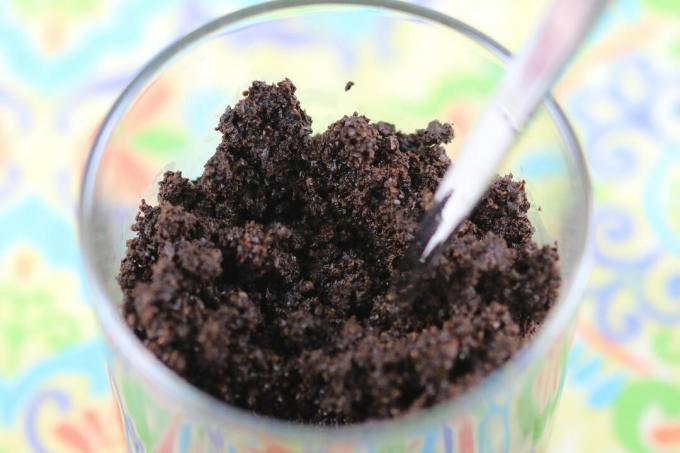
In addition to stains, cat urine leaves an extremely unpleasant odor that is difficult to remove. However, there are simple home remedies to prevent cats from marking their territory.
In a nutshell
- several home remedies to deter cats from tagging
- expel with a water jet
- Cats don't like certain smells
- try several "scents".
- cultivate strong-smelling plants
Table of Contents
- home remedies
- smells
- Plant
- frequently asked Questions
home remedies
To prevent cats from marking in certain places, you can stop them with a well-aimed jet of water. But don't set it too sharply and don't aim it directly at the animal. In addition, cats dislike certain smells and plants. Whether these home remedies actually help cannot be said in advance. It can therefore take some time to find the right remedy.
Tip: Sprinklers with motion detectors are particularly well suited to deter cats from marking with water.
smells
Cats usually explore their surroundings by sniffing. If you come across a smell that you don't like, avoid the place that smells, from a cat's point of view. It is not possible to determine exactly which scent the cat perceives as a stench. In addition, the smell should be permanent to prevent the cats from marking. This means that you should check the odor intensity daily in order to renew the odor carrier if necessary. Outside, the rain also washes away many home remedies or neutralizes the smell.
Vinegar

- especially apple cider vinegar
- pungent smell
- Moisten endangered / affected areas with spray bottle
- use caution on furniture and delicate materials (may leave unsightly stains)
Spices
- Pepper, Chili Powder, Cayenne Pepper
- works only on dry ground
- Wetness neutralizes the smell
A notice: Spice powders are less suitable for indoor use. On the one hand, pepper irritates human food, on the other hand, the powder is quickly distributed as fine dust in living spaces.
cloves
- Apply clove oil with irrigation water
- put whole cloves in the substrate of potted plants
- Place plants in the appropriate place
coffee grounds

- Let the coffee grounds dry
- deploy at the desired locations
- positive side effect in the garden bed: Fertilizer for many ornamental plants
garlic
- Scatter the chopped garlic cloves
- indoors: put in a small gauze bag
mint oil
- Add a few drops of mint oil to a spray bottle of water
- spray at risk areas
orange oil

- Put a few drops of orange oil in a spray bottle with water
- spray at risk areas
- alternatively lay out orange peels
lemongrass
- Halve the lemongrass lengthways
- cut into small pieces
- lay out in the garden
- indoors: put in a gauze bag and place
Tip: Lemongrass can be cultivated in a bucket. Since it is not hardy, however, it has to spend the cold season indoors.
Lemon Oil / Lemon Juice
- Dilute lemon juice with water
- spray at risk areas
- Be careful with sensitive materials (may leave unsightly stains)
Tip: An alternative to lemon oil or juice are lemon peels, which you can lay out indoors or out.
onion water

- Soak finely chopped onion in warm water
- strain
- Fill the onion water in a spray bottle and spray on the desired areas
Tip: In dry weather, you can also lay out freshly chopped onions in the garden. You have to replace the onions after a rain shower, as the water takes the sharpness out of the onion pieces.
Plant
Plants that repel cats have the advantage that, unlike fragrances, you do not have to constantly renew them. However, so that their scent can actually deter cats from marking, you should plant the helpers flat. It is optimal if you use the plants as frames. This protects the bed and patio from all sides.
Balkan cranesbill (geranium macrorrhizum)
- Fragrance intensity of the leaves is highest in sunny locations
- Odor only perceptible to humans when the leaves are crushed
- hardy
curry herb (Helichrysum italicum)

- Flowers smell strongly of curry
- Flowering period: July to August
- conditionally hardy
- also needs a sunny spot indoors
lavender (Lavandula angustifolia)
- cultivate in the pot or planted out
- needs one sunny location
peppermint (Mentha x piperita)
- Cats can smell the scent from afar
- are sensitive to the smell
piss off plant (Plectranths orantus)

- Scent barely perceptible to humans
- is considered the most effective herbal home remedy for cats
- not hardy
- do not plant until mid-May
A notice: The piss-you plant can also be found commercially under the botanical names Coleus comosus or Coleus canina.
Rue (Ruta graveolens)
- Smell reminiscent of wine
- conditionally hardy subshrub
lemon balm (Melissa officinalis)
- vigorous kitchen herb
- is spreading rapidly
frequently asked Questions
Cat urine can be removed with soap and diluted vinegar (1 part vinegar to 2 parts water). Soap the stain. Then leave the vinegar cleaner on the spot for ten minutes. Finally, wash off the soap and vinegar with water.
When it comes to smell, mothballs are said to keep cats away. However, they are poisonous to animals. They are harmful to human health. In addition, mothballs endanger the environment.
In principle, you can also keep cat-repellent plants in pots or tubs. However, the location can be problematic. Because most plants need a sunny spot. If it's a kitchen herb, you can put the harvest in a gauze bag and place it where you want it.

